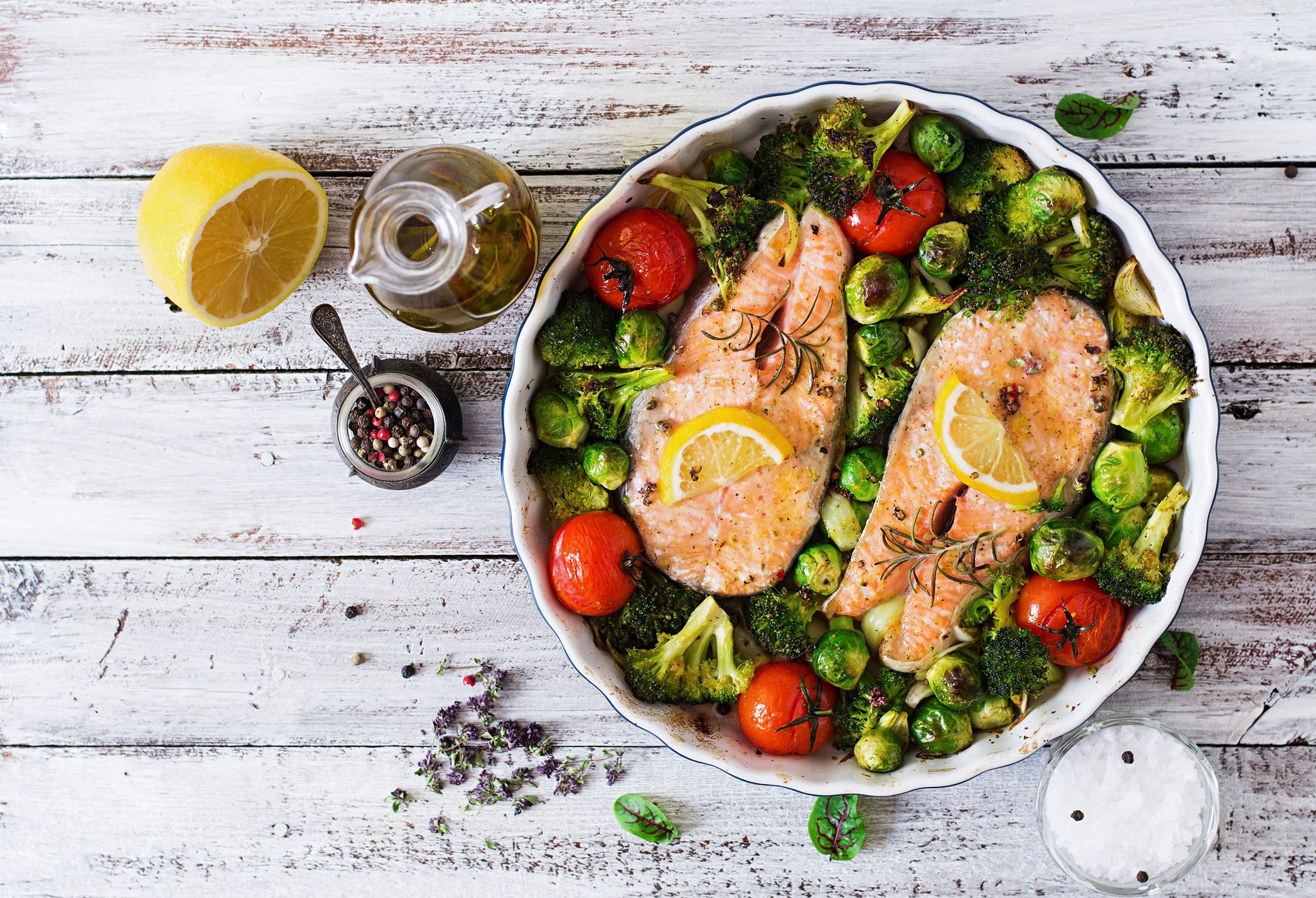One of the biggest obstacles women over 40 face is following popular diet advice for years or decades, yet their weight won't budge. Frustrated, some resort to calorie-restricted diets, restrictive cleanses, or other extreme tactics to see movement on the scale, but that approach almost always backfires.
While weight-loss resistance can have several root causes, one of the most common is eating mistakes that you don't even realize you’re making. Over my 40 years in this industry, I've noticed these five obstacles that keep women like you from reaching and maintaining their goal weight.
The good news is they're simple to fix once you identify them.
Mistake #1: You’re Not Eating Protein First
Protein is more than just fuel; it's a crucial building block for your body. Taking an eat-protein-first approach helps build and preserve muscle, which is vital for preventing age-related muscle loss (sarcopenia) and supporting weight-management efforts.1 Additionally, prioritizing protein helps your hunger and cravings, all while boosting your metabolism.2
When you eat protein first, you trigger the hormones that make you feel full, and require more energy for digestion, making them an effective choice for fueling your body for long-lasting energy and satiety.3
Your minimum protein intake should be 0.7 grams per pound (and ideally, 0.8 grams per pound) of your ideal body weight. Aim for 1.0 grams per pound of your ideal body weight to build muscle and recovery.
Let's say your ideal body weight is 150 pounds. Your target protein intake at 0.8 grams per pound will be 120 grams, divided into three meals (40 grams at every meal).
A few other things to consider with an eat-protein-first approach:
- Plant-based sources are often low in one or more essential amino acids. Animal-based proteins are far superior for bioavailability.
- Start every day with at least 30 grams of protein. A loaded smoothie is the perfect way to meet your protein quota easily.
- Bumper meals (your morning and evening meals) are essential for protein intake and should contain 30-50 grams. If a meal is on the lighter side for protein, have it for lunch.
- If you're struggling to hit your protein quota, here’s how to get 100 grams as a meat-eater or vegetarian.

Mistake #2: You're Afraid of Fat
Some relics from the ‘80s are best left behind, and low-fat diets are one of them. Healthy fats are essential for your brain health and can reduce inflammation, which is crucial for weight loss.4
Focus on whole fats from wild-caught fish, nuts, seeds, avocados, and olives. Avoid cheap vegetable oils like canola, corn, and safflower oil, as they are often rancid and high in inflammatory omega-6 fatty acids.
Omega-3 fatty acids, found in wild-caught fish, flax and chia seeds, and walnuts, are particularly beneficial for various aspects of health, including mood, metabolism, and inflammation.
Every meal should have two to four servings of healthy fats. (One serving is about 100 calories.) You’ll find lots of delicious ideas on my recipes page, including Blackened Salmon or my Loaded Guacamole Buddha Bowl.
Optimal amounts of omega-3 fatty acids from food alone can be difficult. Every Omega Plus softgel provides 1,000 mg of omega-3 fatty acids, with high amounts of eicosapentaenoic acid (EPA) and docosahexaenoic acid (DHA). Vitamin E isomers as Delta Gold® ensure freshness. You get all the benefits of EPA and DHA in one easy-to-take softgel.*
Mistake #3: You’re Not Eating Enough Vegetables
Research shows that boosting your vegetable intake can support weight loss.5 Veggies are rich in fiber, which promotes healthy blood-sugar levels, gut health, and feeling fuller longer.
Cruciferous vegetables like broccoli, cauliflower, Brussels sprouts, kale, cabbage, bok choy, and collard greens are particularly nutritious options that can help reduce inflammation and support various aspects of your health.
This Paleo Steamed Broccoli with Garlic Oil Drizzle is simple and delicious, and these Roasted Brussels Sprouts with Bacon will convert even the most veggie-phobic person to a fan. Your target goal for non-starchy and cruciferous vegetables is 5-10 servings daily, and more is better! One serving means 1/2 cup cooked or 1 cup raw vegetables.
Complement these veggies with slow low carbs. These slow-absorbing, low-sugar-impact carbohydrates keep you full longer. One serving would be 1 cup of fruit or 1/2 cup of other slow low carbs such as lentils, quinoa, and butternut squash. Aim for 0-2 servings of slow low carbs at every meal. Some people do better with one serving at lunch and up to two for dinner, and find that they sleep better with more healthy carbs in the evening. That’s because healthy carbs can help shut down your stress hormone, cortisol.
Mistake #4: You’re Obsessing Over Calories
Your body is not a bank account. It's a chemistry lab. While calorie intake is important, the quality of your calories is paramount. Research has shown that focusing on food quality, rather than strict calorie counting, can lead to effective weight loss.6
That’s because quality foods rich in fiber, protein, and healthy fats nourish your body with essential nutrients, regulate your appetite, and reduce cravings. They help stabilize blood-sugar levels, providing steady energy throughout the day. Eating by the plate, rather than by the calorie, is a simple way to steady blood sugar so insulin levels stay low and fat burning stays high.
Mistake #5: You’re Not Digesting Your Food
As you age, natural digestive enzymes and stomach-acid production may decline. This makes breaking down and absorbing nutrients efficiently more difficult. Stress can exacerbate these issues.
Consider using digestive-enzyme supplements to aid digestion and alleviate common discomforts like bloating and gas. These supplements typically contain enzymes like lipase for fat, protease for protein, and amylase for carbohydrates. They may also contain unique digestive enzymes to help break down potential problem foods like gluten and dairy. Ideally, take digestive enzyme supplements about 10-20 minutes before meals.
Protein First Enzymes is a powerhouse formula that works for anyone who needs digestive support to help break down and absorb food. We’ve combined a priority blend of digestive enzymes with Betaine HCl for comprehensive digestive support.*
A Flexible Metabolism Helps You Reach and Maintain Your Goal Weight
Underlying these five strategies is metabolic flexibility, where your body can best utilize carbs or fat for fuel for its needs. Years or decades of yo-yo dieting, excessive cardio, and other factors can crash your metabolism. As a result, your body isn't efficiently converting the calories you consume into energy. You often feel sluggish or mentally foggy, blood-sugar imbalances steal your energy levels, and weight loss is super challenging.
Optimizing your metabolism can help you break through weight-loss plateaus and overcome weight-loss resistance.
My Metabolism Rescue Program is the ultimate way to gain control of your metabolism and find your healthy weight. This cutting-edge program features a comprehensive guide, an exclusive one-hour masterclass, and a hand-selected bundle of metabolism-supporting supplements (All-In-One Shake, Metabolic Reset™, and Collagen Peptides Powder).*
References:
- LaPelusa A, Kaushik R. Physiology, Proteins. [Updated 2022 Nov 14]. In: StatPearls [Internet]. Treasure Island (FL): StatPearls Publishing; 2023 Jan-. Available from: https://www.ncbi.nlm.nih.gov/books/NBK555990/
- Healthline: 10 Science-Backed Reasons to Eat More Protein
- Westerterp KR. Diet-induced thermogenesis. Nutr Metab (Lond). 2004 Aug 18;1(1):5. doi: 10.1186/1743-7075-1-5. PMID: 15507147; PMCID: PMC524030.
- Harvard Health: Know the facts about fats
- Nour M, Lutze SA, Grech A, Allman-Farinelli M. The Relationship between Vegetable Intake and Weight Outcomes: A Systematic Review of Cohort Studies. Nutrients. 2018 Nov 2;10(11):1626. doi: 10.3390/nu10111626. PMID: 30400139; PMCID: PMC6266069.
- Gardner CD, Trepanowski JF, Del Gobbo LC, Hauser ME, Rigdon J, Ioannidis JPA, Desai M, King AC. Effect of Low-Fat vs Low-Carbohydrate Diet on 12-Month Weight Loss in Overweight Adults and the Association With Genotype Pattern or Insulin Secretion: The DIETFITS Randomized Clinical Trial. JAMA. 2018 Feb 20;319(7):667-679. doi: 10.1001/jama.2018.0245. Erratum in: JAMA. 2018 Apr 3;319(13):1386. Erratum in: JAMA. 2018 Apr 24;319(16):1728. PMID: 29466592; PMCID: PMC5839290.
The views in this blog by JJ Virgin should never be used as a substitute for professional medical advice. Please work with a healthcare practitioner concerning any medical problem or concern. The information here is not intended to diagnose, treat, or prevent any disease or condition. Statements contained here have not been evaluated by the Food and Drug Administration.
*These statements have not been evaluated by the Food and Drug Administration. This product is not intended to diagnose, treat, cure, or prevent any disease.






